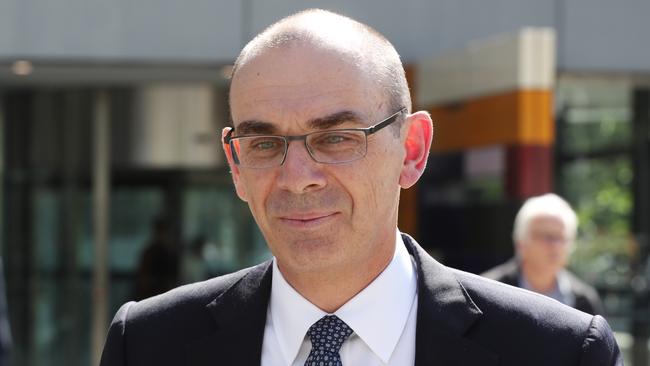Ratcheting up the mongrel
An APRA memo about its oversight of CBA is an eye-opener, pointing to changes likely under tougher supervision.

The phrase — coined in a paper presented to APRA’s executive board last June — was picked up in the final days of the banking royal commission when the agency’s chair Wayne Byres was in the witness box.
Byres defended APRA’s performance, but he was always going to collide with one of commissioner Ken Hayne’s key interim findings — that the regulator shied away from any public criticism of the major banks’ governance and culture until its August 2017 appointment of an independent panel to examine the entrails of Commonwealth Bank.
Byres told Hayne that he interpreted supervision mongrel to mean that supervisors would “ratchet up the mongrel” as long as it was clear that senior APRA management supported a more aggressive approach.
A seven-page note by James Douglas, a principal analyst in the CBA supervision team, set out 11 possible implications for supervision practices in light of the prudential review.
As a prelude, he noted that the inquiry was a “radical escalation” in the oversight of the bank, with the number of full-time staff exclusively working on the project increasing five-fold to more than 30 from a business-as-usual scenario.
Leaving that aside, Douglas said the most important thing was that the institution’s board, chief executive and group executives should be squarely in APRA’s crosshairs, and an appetite must exist to “take action where appropriate”.
One-on-one interviews with individual board members and group executives should be considered for outlier institutions.
APRA, he said, should also rebuild the specialist capacity to conduct cultural assessments and build its appetite for the application of sanctions to financially strong firms, making capital penalties the norm if a prudential review requirement has not been implemented in the allocated time frame.
Douglas pushed for prudential reviews of remuneration practices for each of the major banks after the 2018 financial year, commenting that APRA would have to do less of the “heavy lifting” if it got the industry’s incentives right.
Board paper reviews should also be “refreshed” to enable a genuine assessment of the quality of information passed on to directors, with a peer group comparison of investment prioritisation practices likely to be beneficial.
Before the CBA inquiry, APRA developed six hypotheses on likely outcomes which were largely confirmed.
Douglas argued for “hypothesis-led” supervision, instead of just kicking tyres.
More generally, he said supervision practices had not identified the weaknesses in the CBA board and executive committee, which were a core part of the regulator’s mandate.
It should have called out inadequate remuneration practices earlier, at least by 2016, and spotlighted the severe weaknesses in CBA’s compliance function by noting its small size and low level of seniority.
“Possibly, APRA’s preference for non-legalistic interactions created a blind spot here,” Douglas said.
Finally, the priority accorded to following up unresolved issues was often lowered as new challenges emerged.
APRA clearly has a lot to think about in the post-Hayne era.
gluyasr@theaustralian.com.au
Twitter: @Gluyasr



APRA’s memo-to-self about its gentle oversight of the Commonwealth Bank is an eye-opener, pointing to some of the changes likely to be made as the prudential regulator develops its “supervision mongrel”.